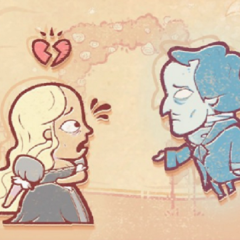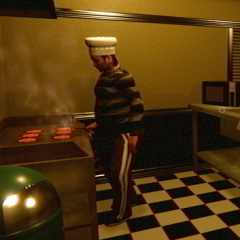Miside begins as a seemingly light visual novel, with daily routines, affectionate dialogue, and bright anime-style visuals. The player takes on the role of someone drawn into the life of a cheerful, obsessive character who wants constant attention. At first, the tasks appear harmless—sharing meals, doing chores, exchanging gifts—but the repeated cycles begin to show signs of control. What starts as warmth turns into possessiveness, and the boundaries between care and confinement begin to blur.
Tone, Design, and Presentation
The game’s visual style is intentionally deceptive. Vibrant colors and cheerful expressions hide an underlying psychological weight. The music follows this same contrast—soft, melodic tracks gradually fade into distorted ambient tones as the story deepens. The interface itself reflects the emotional spiral, with once-friendly icons becoming distorted or glitchy over time. The longer the player stays, the more the environment bends around the central character’s emotional state, creating a sense of unease without direct threats.
Characters and Emotional Tension
Miside features a small cast, but each character is designed to influence the player’s perception of control, trust, and escape. Some offer information, others create new doubts. The protagonist becomes trapped in emotional feedback loops, where every action—whether resistance or compliance—feeds into the same closed system. The game does on sudden scares, and instead builds pressure through repetition, subtle changes, and emotional unpredictability. The player’s role shifts from visitor to possession, and the tension comes from realizing how difficult it is to leave.






























